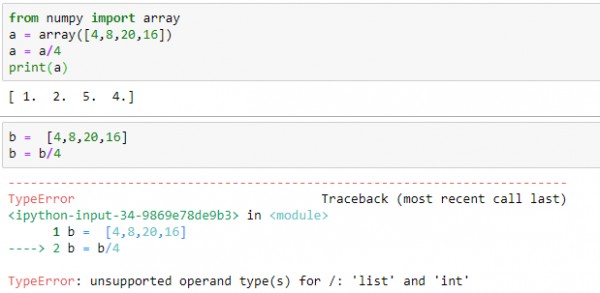Lists and arrays are used in Python to store data(any data type- strings, integers etc), both can be indexed and iterated also. Difference between lists and arrays are the functions that you can perform on them like for example when you want to divide an array by 4, the result will be printed on request but in case of a list, python will throw an error message. Here's how it works:

Arrays need to be declared whereas lists do not need declaration because they are a part of Python's syntax. This is the reason lists are more often used than arrays. But in case you want to perform some arithmetic function to your list, one should go with arrays instead.
If you want to store a large amount of data, then you should consider arrays because they can store data very compactly and efficiently.
Hope it helps!!
If you need to know more about Python, It's recommended to join Python course today.
Thanks!
 REGISTER FOR FREE WEBINAR
X
REGISTER FOR FREE WEBINAR
X
 Thank you for registering
Join Edureka Meetup community for 100+ Free Webinars each month
JOIN MEETUP GROUP
Thank you for registering
Join Edureka Meetup community for 100+ Free Webinars each month
JOIN MEETUP GROUP